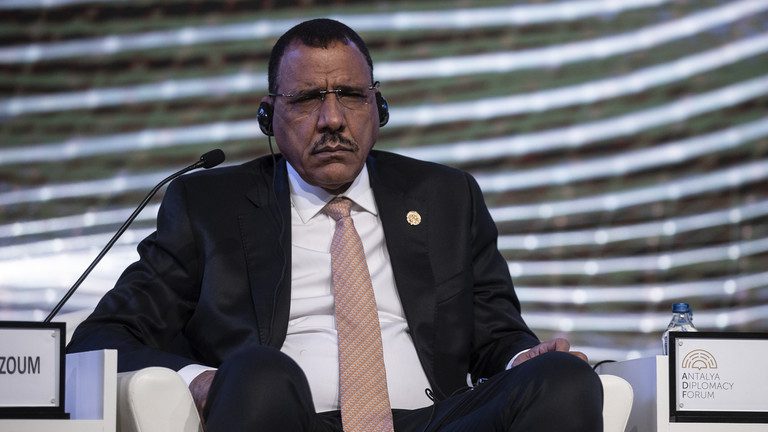Africa
Son of ousted Niger president released from house arrest

Salem Mohamed, the son of Niger’s ousted president Mohamed Bazoum, has been granted provisional release from house arrest by Niger’s military court.
The court’s decision was announced in a statement on Monday. Salem, who is 23 years old, had been detained at the presidential palace along with his parents since Bazoum was overthrown in a military coup in late July. The coup leaders had charged him and the deposed president with conspiracy to undermine Niger’s authority and security.
Salem’s release came as a result of negotiations between the Nigerien military rulers and Togo’s president, Faure Gnassingbe, who has been mediating the political situation in Niger. According to a source close to the ousted president, Salem arrived in Togo’s capital, Lome, on Monday evening after leaving Niamey earlier.
The new rulers of Niger have been under pressure to release Bazoum, his family, and other detained officials. They have been accused of failing to combat Islamist terrorists in the Sahel region, despite the presence of foreign troops.
The military government had previously accused Bazoum of attempting to flee to neighboring Nigeria with the help of a foreign power. In response to the coup, the West African regional authority, ECOWAS, imposed severe sanctions on Niamey, and Western partners such as the US, Germany, and France suspended aid to the former French colony.
The coup leaders have implemented several measures to reassess their relationships with former allies in response. This includes cutting military ties with Paris due to allegations of aggression, resulting in the suspension of all cooperation with the International Organization of Francophone Nations (OIF) based in Paris. Additionally, Niger has canceled two military partnership missions with the European Union (EU) after revoking an anti-migration agreement with the bloc.
In response to these actions, the French government announced the closure of its embassy in Niger “until further notice” a week ago. They cited “serious obstacles” in carrying out diplomatic duties in the former colony and have consistently referred to the newly installed government in Niamey as “illegitimate.” Paris has also expressed its support for military intervention against the coup leaders, a move that ECOWAS has threatened to employ in order to free Bazoum and reinstate democratic rule.
On the other hand, Washington has taken a different approach. Despite Bazoum’s previous call for intervention to restore constitutional order, the United States has stated that it will establish “pragmatic” relations with the coup leader instead of completely disengaging.
In a separate development, the ECOWAS Court of Justice ruled last month that the detention of Bazoum and his relatives was arbitrary and ordered their release.
